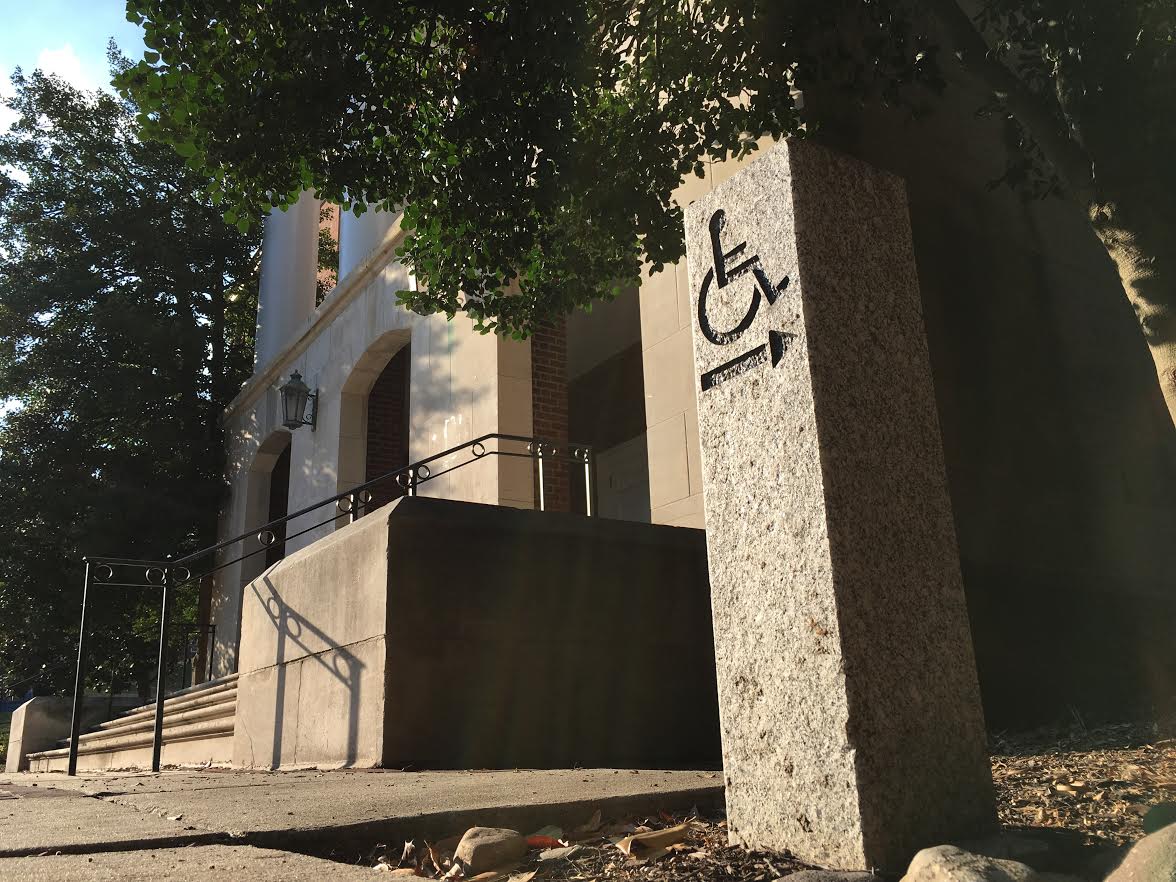Views expressed in opinion columns are the author’s own.
The House of Representatives passed a bill last Thursday targeting the power and utility of the Americans With Disabilities Act. And the bill succeeds in absolutely ravaging it. The proposed legislation would require anyone who wants to sue a business for an ADA public accommodations violation to give the business 60 days advance written notice and another 60 days to implement a solution before proceeding with litigation.
[Read more: UMD students with disabilities want more campus resources and support]
So, whereas before businesses were essentially required by law to meet an accessibility standard, under this bill the burden shifts to people with disabilities to sink time, money and energy to enforce that standard. It’s a reversal of almost 30 years of progress for the rights of Americans with disabilities, and also a reflection of the greater lack of disability-consciousness in this country. We’re so out of touch with the needs of the community that we’re not even aware why the provisions of the ADA exist.
Part of this is because the federal government has decided to deprioritize the rights of people in favor of the rights of businesses. In December, Attorney General Jeff Sessions withdrew a number of guidance documents detailing in plain language how the ADA works and outlining the ways businesses can be more accessible, in an effort to “further discussion with relevant stakeholders.” In the supposed interest of representing all parties, this retraction ignores the systemic power imbalance, between institutions and those with disabilities, that the ADA sought to correct in the first place.
Even on the local level, there’s a struggle to secure resources for the disabled community. In October, the University of Maryland decided to remove building markers indicating handicap-accessible entrances and instead note these facilities online. Facilities Management determined this was preferable to updating deteriorating pillars and erecting new ones for buildings constructed or renovated within the last 20 years. The inconsistency of the pillars around the campus was the result of inattention to begin with, and when it began to inconvenience this university, the entire service was pulled.
Accessibility markers are part of creating a campus inclusive of people with disabilities. Forcing them to look up online what buildings they can access is another inconvenience that separates them from their peers. And we can’t say these actions affect a small population: According to a Centers for Disease Control and Prevention report released in 2015, 22 percent of adults in the United States have a disability.
Moreover, while this university provides extensive student resources through the Accessibility and Disability Service, faculty receive no training on accommodating students with disabilities. They’re a demographic that faces issues of discrimination and violence as much as other protected classes, and it’s important people be aware of their needs — as well as the established standards — for safety and accessibility.
[Read more: As UMD marks Disability Awareness Month, advocates say city and campus could do more]
Even less abject inconveniences, such as College Park’s lack of sidewalks, show a lack of consideration. It’s difficult for pedestrians to safely navigate a considerable amount of this town and reach new developments within the city, and that difficulty is magnified for those with certain disabilities. More sidewalks are long overdue in this area, and while there is more expansive construction in progress, it’s strange and unfortunate that we’ve had to wait so long.
The established rights of people with disabilities in this country shouldn’t be fought out 27 years after their protections were secured. There’s a lack of information and exigency on every level, from individual institutions to the federal government, at a time when we should be making progressive gains. This bill could undermine the whole ADA, and you have to question how many institutions understand what that would mean.
Sona Chaudhary, opinion editor, is a sophomore English and geology major. She can be reached at sonachaud@gmail.com.



